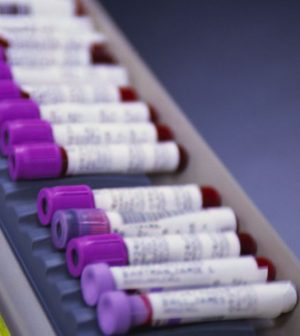- Could Your Grocery Store Meat Be Causing Recurring UTIs?
- Are You Making This Expensive Thermostat Error This Winter?
- Recognizing the Signs of Hypothyroidism
- 10 Strategies to Overcome Insomnia
- Could Artificial Sweeteners Be Aging the Brain Faster?
- Techniques for Soothing Your Nervous System
- Does the Water in Your House Smell Funny? Here’s Why
- Can a Daily Dose of Apple Cider Vinegar Actually Aid Weight Loss?
- 6 Health Beverages That Can Actually Spike Your Blood Sugar
- Treatment Options for Social Anxiety Disorder
Are You Running Short on Iron?

Could you — or your teenage daughter — have an iron deficiency and not know it? If you’re getting enough sleep, but still feel tired, running low on iron could be the problem.
Iron is our most common nutrient shortfall. A serious deficiency can lead to anemia. That’s when you have fewer red blood cells than normal or when those cells don’t have enough hemoglobin, a protein that carries oxygen throughout the body. A variety of symptoms can signal a problem.
Signs of Iron Deficiency
- Fatigue
- Pallor
- Headaches and/or feeling dizzy
- Weakness
If you’re feeling tired or have iron-deficiency risk factors like being overweight or a vegetarian, ask your doctor about getting tested to see if you need to boost iron through diet or would benefit from taking iron supplements.
Both iron deficiency and anemia can result from menstrual blood loss, which is why the U.S. Centers for Disease Control and Prevention recommends yearly tests for teenage girls who experience heavy periods.
A note on testing: While a complete blood count test can detect anemia, it may not pick up an iron deficiency. That requires a separate blood test to measure the protein ferritin. If you have risk factors, having this test can catch a deficiency before it progresses to anemia.
To boost iron through diet, eat lean beef, chicken and turkey, oysters, dark leafy greens and whole grains. Besides leafy greens, the best plant-based sources of iron are legumes (beans and lentils), tofu and cashews. The body is better at using the iron from animal sources, but you can improve the absorption rate of iron from plant-based foods by eating a high vitamin C food, like citrus fruit, at the same meal.
More information
The Academy of Nutrition and Dietetics has more about foods to boost iron.
Source: HealthDay
Copyright © 2026 HealthDay. All rights reserved.










